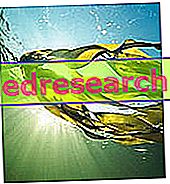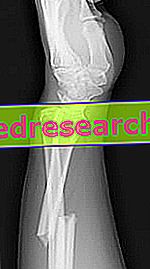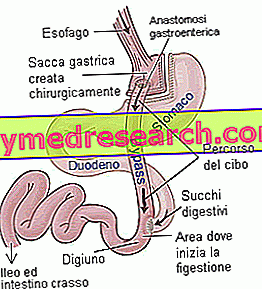See also: iodine rich foods
As is known to most people, the thyroid is the "internal thermostat of the human body". Its activity, in fact, leads to the synthesis and release of particular hormones, capable of heavily influencing various metabolic processes and favoring the growth and development of different organs, in particular of the brain.

Since the synthesis of thyroid hormones depends on the availability of adequate amounts of iodine, most "thyroid supplements" contain this mineral or sources that are particularly rich in it (in general seaweed extracts, such as fucus or laminaria). Selenium is also often present, an essential component of the enzymatic system that transforms thyroxine (T4) into triiodothyronine (T3), playing a leading role in supporting thyroid function
Iodine deficiency, iodine in foods
Iodine is an essential micronutrient, present in the body in small quantities (15-20 mg). Daily losses are around 40 - 100 µg. For this reason, also taking into account the possible ingestion of goitic foods, a daily intake (in the adult) of 150 µg is recommended. To ensure a normal development of the child, pregnant and lactating women should take more, respectively 220 µg / day and 290 µg / day.
In the case of insufficient iodine intake, the thyroid gland is unable to produce thyroid hormones in adequate amounts. A prolonged iodine deficiency determines a disease known as hypothyroidism, which has more or less important repercussions on health based on the severity of the deficit and the period in which it occurs (it is extremely important that pregnant women, nurses and children with less than three years take sufficient quantities of this element). Until a few decades ago iodine deficiency hypothyroidism was quite widespread in some territories (even Italian) where the soil and its fruits are particularly poor in this mineral. Foods, in fact, contain extremely variable amounts of iodine and the richness of the soil determines the concentration of the mineral in fruit and vegetables, but also in the meat of the animals that are fed with them. The richest sources of iodine are saltwater fish and crustaceans; even eggs, milk and meat contain important quantities.
The best way to ensure the right amounts of iodine is to use iodine-enriched salt instead of the common one as part of a varied and balanced diet. The spread of this simple practice has helped to significantly reduce the cases of hypothyroidism due to insufficient intake of iodine.
Iodine and thyroid supplements
Prevention and side effects
To date, the toxic levels of iodine have not been exactly specified, also due to the fact that these are many times higher than the adequate doses. We have known for some time that an excess of iodine disturbs the thyroid and can cause some forms of hyperthyroidism; the risk, in this sense, is greater the lower the level of basal intake and the more rapidly the dietary intake increases. For this reason, the danger of an iodic excess also depends on the population considered; generally the upper limit of tolerability is set at 500-600 µg / day.
Although iodine supplements - under medical supervision - are particularly useful for some individuals, it is therefore good not to abuse them.
When the thyroid doesn't work ...
Note that supplements based on calcium and iron (ingredients quite common in various dietary supplements), can interfere with the absorption capacity of levothyroxine, a synthetic hormone (see eutirox) used in the treatment of hypothyroidism. To prevent this interaction, calcium supplements must be taken at least four hours before or after the drug.
In general, there are no specific diets for hypothyroidism, although in this regard many "experts" express contrary opinions. The only recommendation is to take the medicine as prescribed by your doctor (generally on an empty stomach). Excess fiber and certain foods or drugs can in fact compromise adequate absorption and as such must be spaced by a few hours. Examples are antacids that contain aluminum or magnesium, some antiulcer drugs such as sucralfate, fiber supplements, soy flour, nuts and the aforementioned iron or calcium supplements.
Even more unscientific and dangerous is the belief that iodine supplements can replace the synthetic hormones used in the treatment of hypothyroidism. In fact, since the introduction of iodized salt, cases of hypothyroidism due to insufficient intake of iodine have become very rare; for this reason and for other reasons, the spontaneous use of iodine supplementation is strongly discouraged in all those cases in which the thyroid does not work properly (both in defect and in excess).



